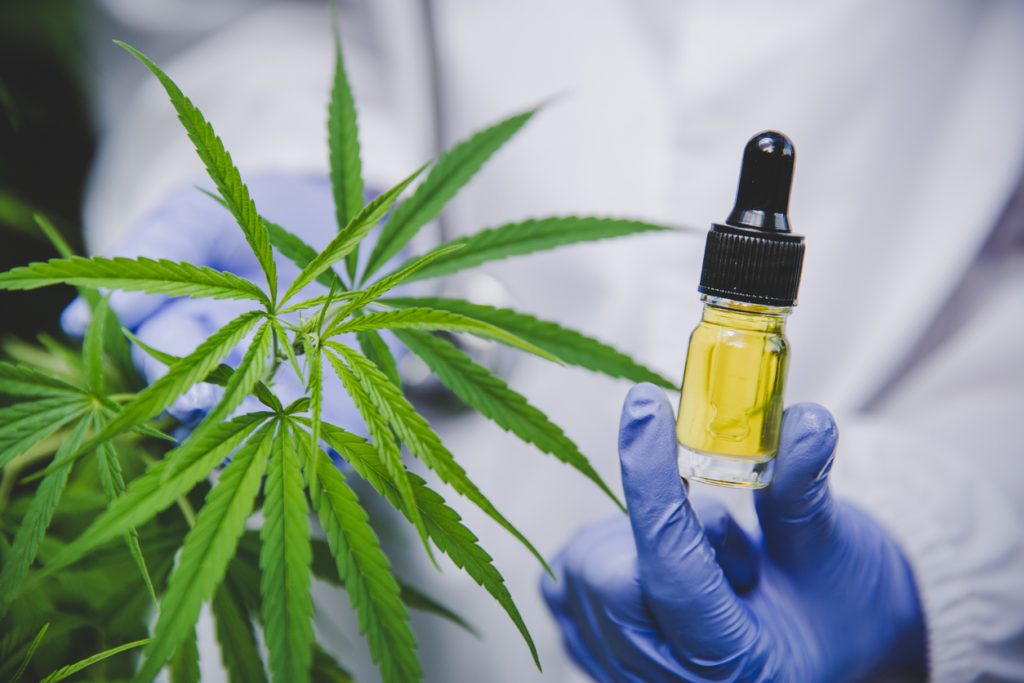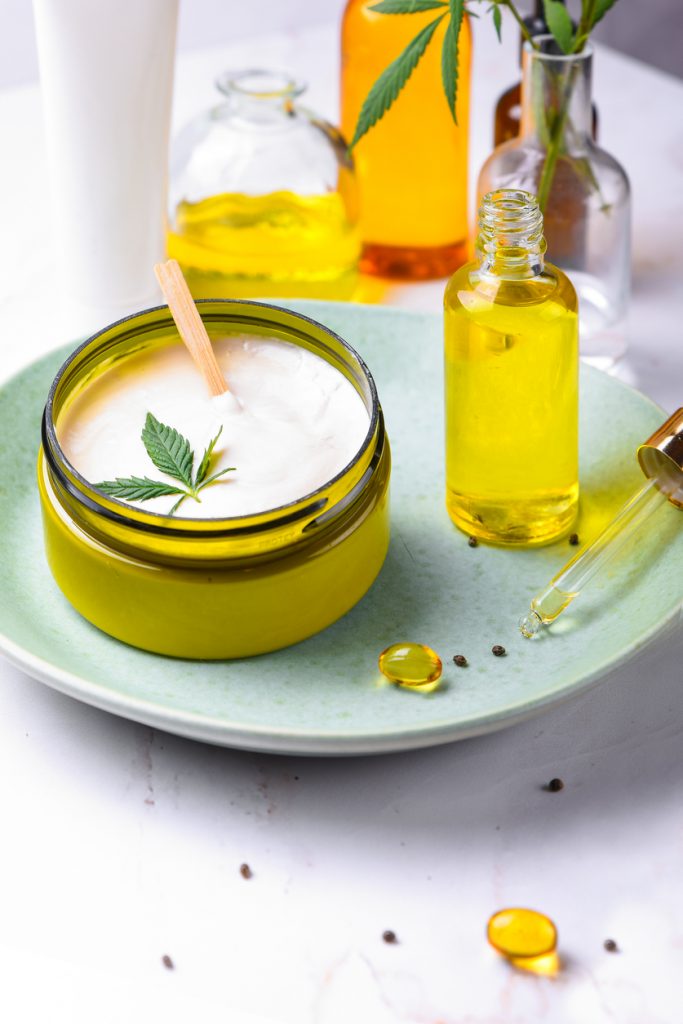What exactly is CBD? It is a kind of natural compound called a cannabinoid, which is derived from the cannabis plant. It is directly derived from the hemp plant which is a cousin of the marijuana plant. This is where it gets confusing, which plant does it come from? The main difference is the level of THC or tetrahydrocannabinol, the cannabis plants contain. THC is linked to a “high;” however, CBD is made from industrial hemp that does not contain THC. Even the minuscule trace amounts found in full-spectrum CBD are sterile and don’t have psychotropic effects.
You may find CBD advertised everywhere you look in many different formations. I saw a collagen mask with CBD oil in a wellness store being touted as an anti-aging product. In recent years, there has been a surge in the popularity of CBD as new studies explore the potential health benefits. Several studies suggest that CBD products, like the oil, may be helpful for symptoms of depression, anxiety and insomnia.
How It Can Help
If you are considering the use of CBD for therapeutic reasons, it is important to understand that the studies around CBD are non-conclusive. In the last decade, many studies were conducted. However, the majority were done using animals.
This indicates that the possible benefits of CBD being an effective treatment for depression in human beings are speculative. Still, CBD appears to have several benefits for depression, particularly for dealing with:
- Cognitive impairment
- Anxiety
In addition, CBD and THC may be beneficial for conditions possibly related to depression, like chronic pain. A study from the European Journal of Pain showed, using animals, that CBDD applied to the skin could help lower pain and inflammation due to arthritis.
>READ: ADD CBD OIL TO YOUR FIGHT AGAINST CHRONIC INFLAMMATION?
Research Findings
Experts believe the potential benefits of CBD for depression and anxiety are associated with its positive outcome on serotonin receptors in the brain. It is highly likely that low amounts of serotonin are linked to depression. CBD does not necessarily improve levels of serotonin, but it could impact how the chemical receptors in your brain react to the serotonin that is currently in your system.

A 2014 study conducted on animals found that the effects CBD has on the brain receptors are both anti-anxiety and antidepressant. A more recent study conducted in 2018 concluded that CBD contains anti-stress effects, which could lower stress-related depression. The studies are promising, but bottom line, without high-quality evidence in human studies we can’t pinpoint effective doses.
This area is being actively researched and new reviews and studies are published each year. As researchers start to have a better understanding of CBD and its potential concerns or benefits, information on how to use the product most effectively will continue to change.
>READ: WHY CANNABIS IN OINTMENTS, LOTIONS AND DRINKS IS A THING NOW
Side Effects
So far, it does not appear that CBD causes many side effects. However, there are some individuals who might be more sensitive to the compound and experience side effects like:
- Changes in appetite or weight
- Fatigue
- Diarrhea
- Irritability
It is challenging to know whether CBD results in any long-term side effects because of a lack of research. At this point, no major long-term risk has been identified by experts. Bear in mind that this is not an indication that there is none. It just means researchers have yet to encounter any.
In a review conducted by the World Health Organization in 2017, it was concluded that CBD is safe in general. However, they noted that adverse effects could result from interactions between certain medications and CBD. Also, be sure to note that CBD is not regulated by agency. So be sure you are getting high-quality CBD, from a reputable source that uses effective extraction methods.
To lessen the risk of side effects, ensure that you have a discussion with your healthcare provider prior to using CBD. This is vital if you take herbal supplements, over-the-counter medications and prescription medications.
>READ: WILL CBD HELP THE PAIN IN YOUR JOINTS AND MUSCLES?
4 Ways to Use CBD

There are four formulations in which CBD is available. They are:
- Vaping With CBD Oil. This is one method of quickly ingesting the compounds. However, some debate is there about the long-term safety of this technique. Additionally, it can cause throat irritation and coughing as well.
- Oral. This includes oils, sprays, capsules and tinctures. The mixes can be taken as is or they can be used in coffee, smoothies or other preparations.
- Edible. There is an abundance of CBD-infused gummies, foods and drinks currently available on the market.
- Topical. CBD-infused creams, lotions and other beauty products are currently quite popular. The products contain CBD and you apply directly to skin. However, it is likely that this formulation is better for pain and not necessarily mental health uses.
Research has revealed that the compound is generally safe. However, it could interact with existing medications. As such, it is wise to speak with your healthcare provider and get a professional review of your medications and other supplements you currently take before you start using CBD. But CBD is becoming a popular remedy for a variety of health issues, including anxiety and depression.







